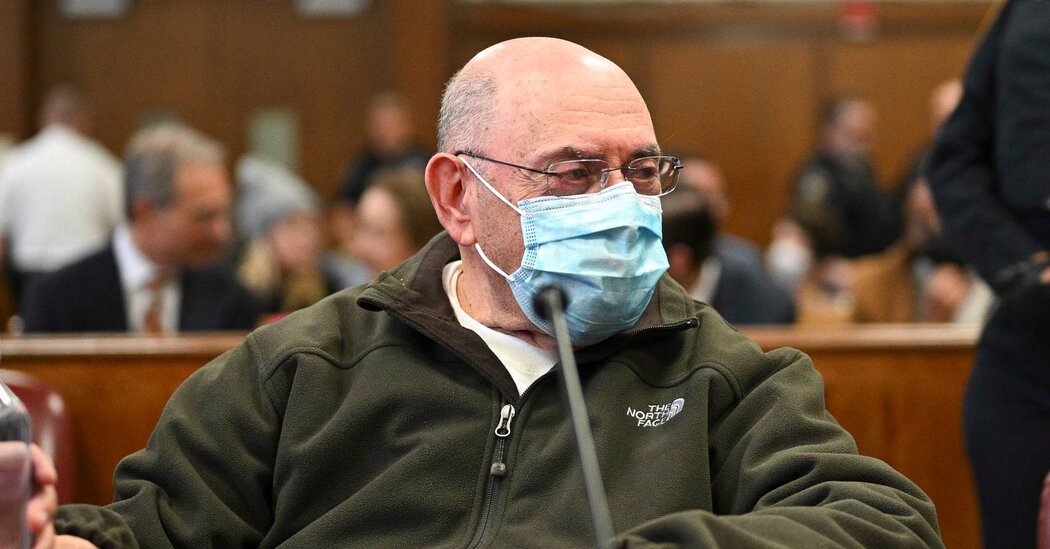Allen H. Weisselberg, the former chief financial officer of the Trump Organization, is facing a new round of pressure from Manhattan prosecutors. This week, they warned that they might file new fraud charges against him, increasing the pressure on Mr. Weisselberg to cooperate in a broader investigation into the former president.
The potential charges, which center on insurance fraud, could lead to a significant prison sentence for Mr. Weisselberg, who is 75. The threat of prison time could change the equation for Mr. Weisselberg, who would face a stark choice: serving significant time behind bars late in life or turning on the former president, whose finances he handled for decades.
The acceleration of the long-running investigation in Manhattan comes as Mr. Trump is facing intense legal pressure from several other corners. Federal prosecutors in Washington, D.C., are scrutinizing his removal of sensitive documents from the White House and his conduct during the Jan. 6, 2021, attack on the Capitol, and a district attorney in Georgia may seek to indict the former president for his attempts to reverse his 2020 election loss in the state.
The potential new charges against Mr. Weisselberg are unrelated to the hush money paid to Stormy Daniels, the porn star who said she had an affair with Mr. Trump. However, the district attorney’s office has already secured the cooperation of Michael D. Cohen, the longtime fixer for Mr. Trump who turned on him after pleading guilty to federal charges involving the hush money.
The basis for an insurance fraud charge against Mr. Weisselberg first emerged publicly in a court filing early last year as part of the New York attorney general’s civil investigation into Mr. Trump and his family business. That inquiry, separate from the district attorney’s criminal investigation, eventually resulted in a September lawsuit against Mr. Trump, three of his adult children and his company. It is scheduled to go to trial in the fall.
Mr. Weisselberg has long been the missing piece in any criminal case against the former president. If he were to cooperate now, he would be likely to avoid prison altogether. But if he is charged and convicted, he could face a significant prison sentence for insurance fraud.
Will Allen H. Weisselberg Cooperate With Manhattan Prosecutors in Investigation of Former President Donald J. Trump?
As Manhattan prosecutors continue to investigate former President Donald J. Trump, they are turning up the heat on Allen H. Weisselberg, the Trump Organization’s former chief financial officer. This week, they warned that they might file new fraud charges against Mr. Weisselberg, who is already serving a five-month sentence in the Rikers Island jail complex after pleading guilty to unrelated tax fraud charges.
The potential charges, which center on insurance fraud, could lead to a significant prison sentence for Mr. Weisselberg, who is 75. He is facing the new round of pressure as the prosecutors begin to present evidence to a grand jury about Mr. Trump’s involvement in paying hush money to a porn star during the 2016 presidential campaign.
The basis for an insurance fraud charge against Mr. Weisselberg first emerged publicly in a court filing early last year as part of the New York attorney general’s civil investigation into Mr. Trump and his family business. That inquiry, separate from the district attorney’s criminal investigation, eventually resulted in a September lawsuit against Mr. Trump, three of his adult children and his company.
Mr. Weisselberg has long been the missing piece in any criminal case against the former president. If he were to cooperate now, he would be likely to avoid prison altogether. But if he is charged and convicted, he could face a significant prison sentence for insurance fraud.
The question now is whether Mr. Weisselberg will cooperate with the Manhattan prosecutors in their investigation of Donald J. Trump. With the threat of prison time looming, Mr. Weisselberg must decide whether to turn on the former president or face the consequences.
Source: www.nytimes.com
